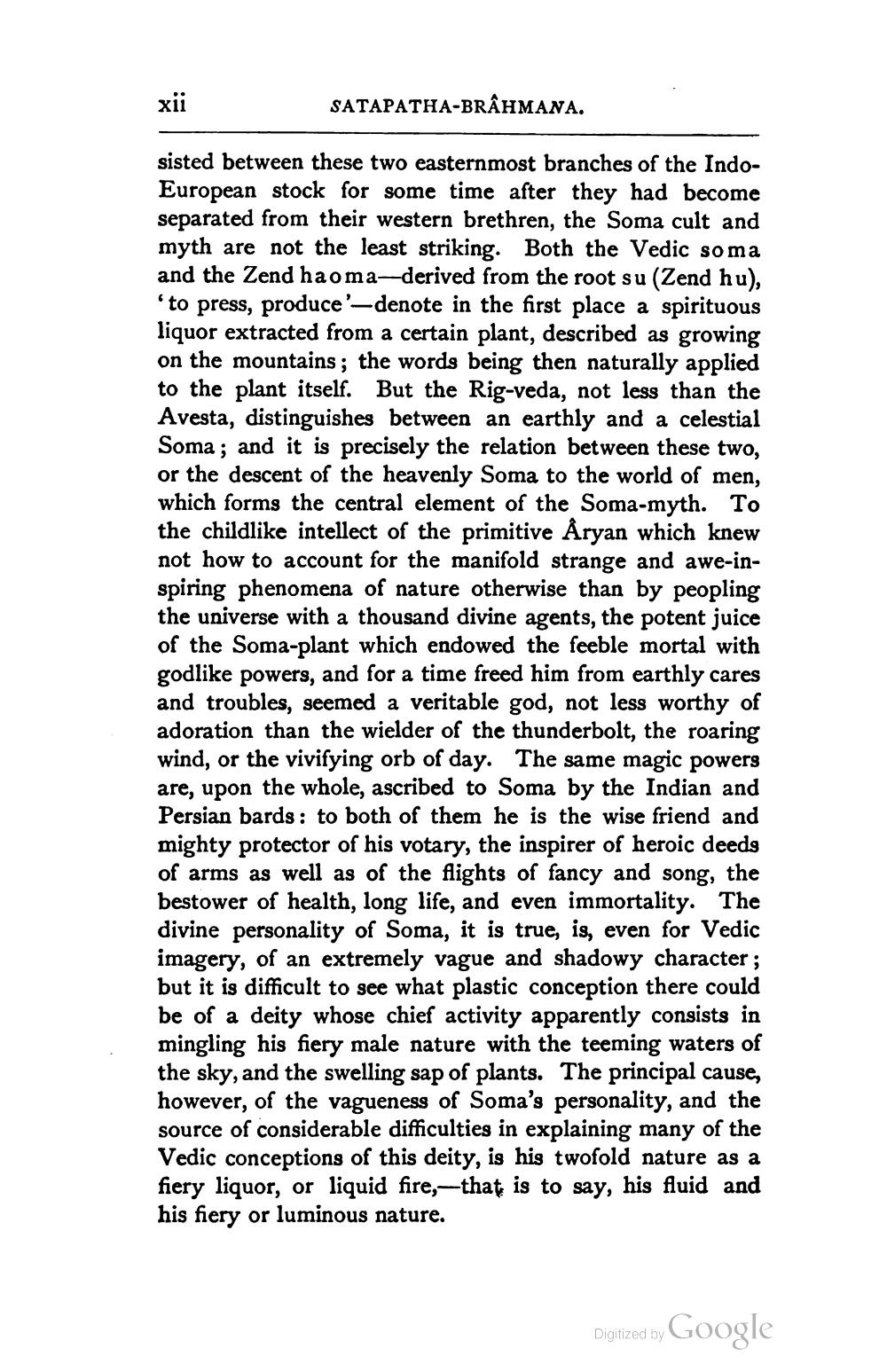________________
xii
SATAPATHA-BRAHMANA.
sisted between these two easternmost branches of the IndoEuropean stock for some time after they had become separated from their western brethren, the Soma cult and myth are not the least striking. Both the Vedic soma and the Zend haoma-derived from the root su (Zend hu), 'to press, produce'-denote in the first place a spirituous liquor extracted from a certain plant, described as growing on the mountains; the words being then naturally applied to the plant itself. But the Rig-veda, not less than the Avesta, distinguishes between an earthly and a celestial Soma; and it is precisely the relation between these two, or the descent of the heavenly Soma to the world of men, which forms the central element of the Soma-myth. To the childlike intellect of the primitive Åryan which knew not how to account for the manifold strange and awe-inspiring phenomena of nature otherwise than by peopling the universe with a thousand divine agents, the potent juice of the Soma-plant which endowed the feeble mortal with godlike powers, and for a time freed him from earthly cares and troubles, seemed a veritable god, not less worthy of adoration than the wielder of the thunderbolt, the roaring wind, or the vivifying orb of day. The same magic powers are, upon the whole, ascribed to Soma by the Indian and Persian bards : to both of them he is the wise friend and mighty protector of his votary, the inspirer of heroic deeds of arms as well as of the flights of fancy and song, the bestower of health, long life, and even immortality. The divine personality of Soma, it is true, is, even for Vedic imagery, of an extremely vague and shadowy character ; but it is difficult to see what plastic conception there could be of a deity whose chief activity apparently consists in mingling his fiery male nature with the teeming waters of the sky, and the swelling sap of plants. The principal cause, however, of the vagueness of Soma's personality, and the source of considerable difficulties in explaining many of the Vedic conceptions of this deity, is his twofold nature as a fiery liquor, or liquid fire,—that is to say, his fluid and his fiery or luminous nature.
Digitized by Google




